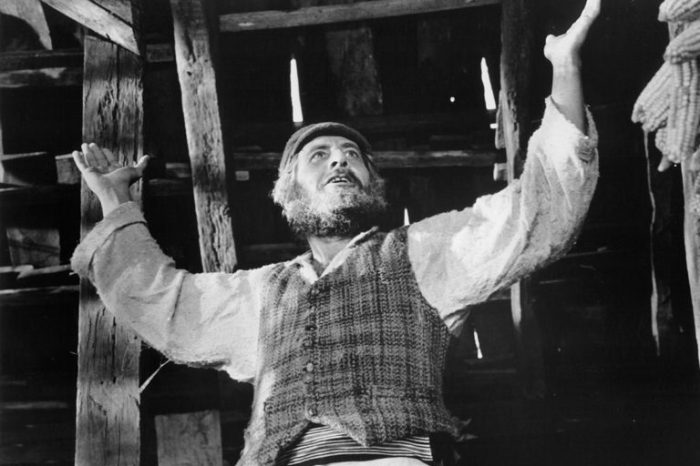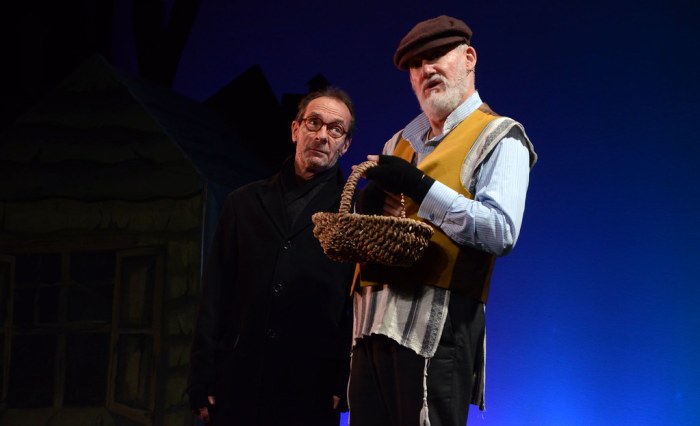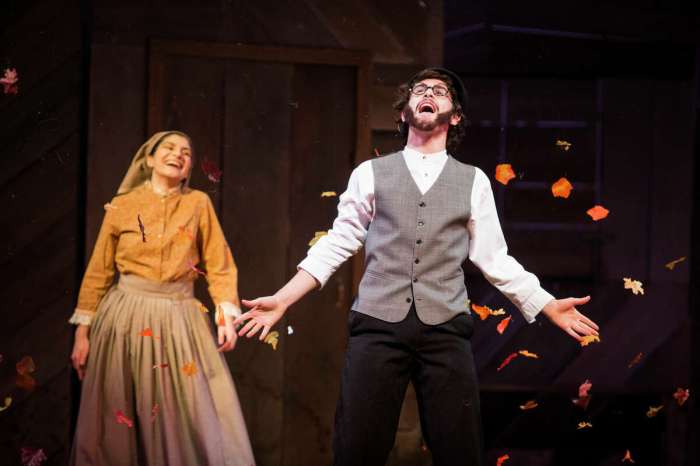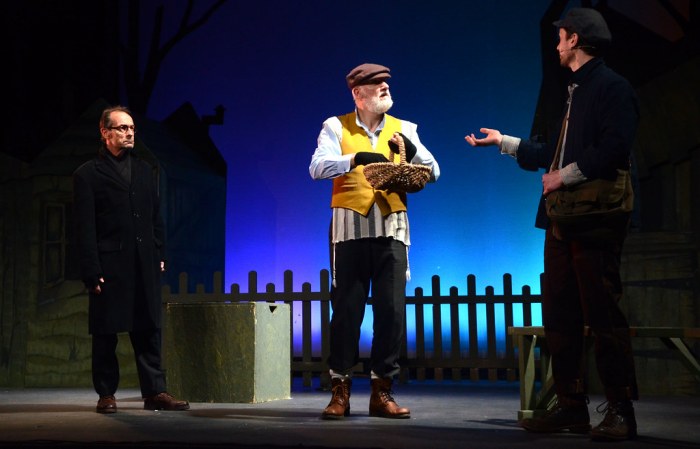Prepare to be captivated by the timeless tale of Mendel Fiddler on the Roof, a musical masterpiece that weaves a rich tapestry of tradition, change, and the enduring spirit of the human heart. Immerse yourself in a world where the boundaries of identity, family, and community are explored with poignant depth and humor.
This beloved musical transports us to the heart of a Jewish village in early 20th century Russia, where Mendel, the humble milkman, grapples with the complexities of a rapidly changing world. As his daughters navigate the delicate balance between tradition and modernity, Mendel’s own faith and beliefs are put to the test.
MENDEL FIDDLER ON THE ROOF

Mendel, the titular character in the musical “Fiddler on the Roof,” is a complex and pivotal figure who embodies the themes of tradition and change. His experiences mirror those of the Jewish community in the early 20th century, as they grapple with the challenges of modernization and assimilation.
Significance of the Name “Mendel”
The name “Mendel” is significant in the context of the musical as it is derived from the Hebrew name “Menachem,” meaning “comforter.” This name reflects Mendel’s role as a source of solace and guidance for his community during a time of great change and uncertainty.
Mendel’s Role in the Musical
Mendel serves as the patriarch of the Tevye family and the spiritual leader of his village. He is a devout Jew who adheres strictly to tradition, but he also possesses a deep compassion and understanding for those who question the old ways.
Through his interactions with his family and community, Mendel grapples with the tension between tradition and modernity, ultimately finding a path that balances the two.
Parallels with the Jewish Community, Mendel fiddler on the roof
Mendel’s experiences as a Jewish man living in a rapidly changing world parallel those of the Jewish community in the early 20th century. As Jews faced increasing pressure to assimilate into the surrounding culture, they struggled to maintain their traditions while also adapting to new ways of life.
Mendel’s journey reflects the challenges and triumphs of the Jewish people as they sought to preserve their identity while embracing progress.
FIDDLER ON THE ROOF THEMES

Fiddler on the Roofexplores timeless themes that resonate deeply with audiences worldwide. These themes, including tradition, family, and identity, are interwoven throughout the musical, providing a rich tapestry of human experience.
Tradition
Tradition plays a central role in the lives of Anatevka’s Jewish community. Religious rituals, customs, and beliefs shape their daily existence. Tevye, the protagonist, struggles to reconcile his traditional values with the changing world around him. The musical illustrates the tension between tradition and modernity, as characters grapple with the consequences of breaking away from established norms.
- Sabbath Observance:The musical opens with the Sabbath ritual, highlighting the importance of tradition in the community.
- Arranged Marriages:Tevye’s daughters’ marriages are arranged according to tradition, reflecting the community’s emphasis on preserving customs.
- Rejection of Modernity:Tevye initially resists the introduction of new ideas, such as education for women, fearing that they will erode tradition.
Family
Family is the cornerstone of Anatevka’s community. Tevye’s unwavering love for his wife and daughters is a testament to the strength of family bonds. The musical explores the challenges and joys of family life, as well as the sacrifices parents make for their children.
- Tevye and Golde:Their marriage, despite its occasional conflicts, is built on mutual respect and affection.
- Tevye’s Daughters:Each daughter has her unique personality and dreams, challenging Tevye’s traditional views on marriage.
- Generational Conflict:The musical depicts the tension between the older generation, represented by Tevye, and the younger generation, eager for change.
Identity
As the world around them changes, the characters in Fiddler on the Roofgrapple with their sense of identity. Tevye struggles to maintain his Jewish identity while navigating a changing society. His daughters, too, question their place in a world that is both familiar and unfamiliar.
- Jewish Identity:The musical explores the challenges and joys of being Jewish in a predominantly Christian society.
- Personal Identity:Each character undergoes a journey of self-discovery, ultimately embracing their own unique identity.
- Cultural Assimilation:The musical raises questions about the extent to which individuals should assimilate into a dominant culture.
FIDDLER ON THE ROOF CHARACTERS

The musical “Fiddler on the Roof” features a rich cast of characters, each with their own motivations, conflicts, and relationships. The main characters, Tevye, Golde, and their daughters, play pivotal roles in the narrative, driving the story forward and exploring themes of tradition, family, and identity.
Tevye
- Motivation:To preserve Jewish traditions and customs while adapting to changing times.
- Conflict:Balancing his deep-rooted beliefs with the evolving values of his children.
- Relationships:Loving husband to Golde, devoted father to his daughters, and respected member of the community.
Golde
- Motivation:To maintain a stable and traditional household for her family.
- Conflict:Accepting her daughters’ desire for independence and love outside of arranged marriages.
- Relationships:Strong-willed and pragmatic wife to Tevye, protective mother to her daughters, and respected member of the community.
Tevye’s Daughters
| Daughter | Motivation | Conflict | Relationships |
|---|---|---|---|
| Tzeitel | To find love and happiness in a marriage of her own choosing. | Challenging traditional arranged marriages and defying her father’s authority. | Loving daughter to Tevye and Golde, devoted wife to Motel. |
| Hodel | To pursue education and a life beyond the village. | Breaking free from societal expectations and embracing her intellectual aspirations. | Independent and strong-willed daughter to Tevye and Golde, devoted wife to Perchik. |
| Chava | To follow her heart and marry the man she loves, even if it means leaving the Jewish community. | Rejecting tradition and choosing love over family and religion. | Rebellious and passionate daughter to Tevye and Golde, devoted wife to Fyedka. |
The interactions between these characters create a dynamic and compelling narrative that explores the complexities of human relationships, the clash between tradition and modernity, and the search for identity in a rapidly changing world.
FIDDLER ON THE ROOF MUSIC

The musical score of “Fiddler on the Roof” is a rich tapestry of traditional Jewish melodies and original compositions that play a vital role in storytelling and conveying the emotions of the characters.
The use of traditional Jewish folk music, such as klezmer and Hasidic melodies, helps to establish the setting of the musical in the Jewish shtetl of Anatevka, Ukraine. These melodies evoke a sense of nostalgia and authenticity, transporting the audience to the world of the characters.
Specific Songs
The musical features several iconic songs that have become synonymous with the story.
Like Mendel in “Fiddler on the Roof,” whose unwavering faith helped him navigate life’s challenges, we too can find guidance in the six pillars of iman . These fundamental beliefs provide a solid foundation for our spiritual and moral growth, empowering us to face life’s trials with resilience and trust.
- “Tradition”: This opening number sets the tone for the musical, establishing the importance of tradition and community in the lives of the characters.
- “If I Were a Rich Man”: Tevye’s humorous and heartfelt song expresses his dreams of a wealthy and carefree life, while also highlighting the challenges he faces as a poor dairyman.
These songs, and others like “Sunrise, Sunset” and “Do You Love Me?”, are not only memorable tunes but also serve as emotional touchstones for the characters and the audience.
The music in “Fiddler on the Roof” is not merely a backdrop but an integral part of the storytelling. It enhances the emotional impact of the musical, allowing the audience to connect with the characters and their struggles on a deeper level.
FIDDLER ON THE ROOF CULTURAL IMPACT

The musical “Fiddler on the Roof” has had a profound cultural impact, resonating with audiences worldwide since its debut in 1964. Its enduring popularity stems from its timeless themes of tradition, family, and the human condition.
On Broadway, “Fiddler on the Roof” holds the record for the longest-running musical in history, with over 3,200 performances. It has won numerous Tony Awards, including Best Musical, and has been revived several times to critical acclaim.
Influence on Film and Popular Culture
“Fiddler on the Roof” has also had a significant impact on film and popular culture. The 1971 film adaptation, directed by Norman Jewison, was a critical and commercial success, winning three Academy Awards. The film’s iconic songs, such as “Tradition” and “If I Were a Rich Man,” have become beloved by generations of viewers.
The musical’s themes and characters have also been referenced and parodied in countless works of popular culture, including television shows, movies, and music. Its enduring legacy is a testament to its universal appeal and its ability to connect with audiences on a deeply human level.
FAQ Guide: Mendel Fiddler On The Roof
Who is Mendel in Fiddler on the Roof?
Mendel is the protagonist of the musical, a humble milkman who struggles to reconcile his traditional values with the changing world around him.
What are the main themes explored in Fiddler on the Roof?
The musical explores themes of tradition, family, identity, faith, and the challenges of change in a rapidly modernizing world.
Why is Fiddler on the Roof so popular?
Fiddler on the Roof has captivated audiences for decades due to its relatable characters, timeless themes, and unforgettable music.